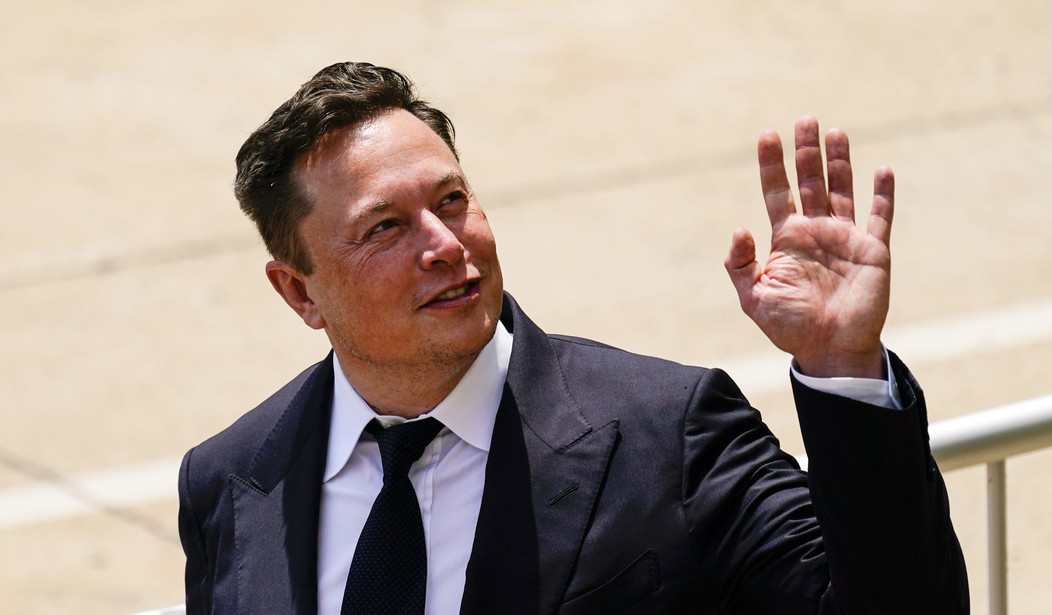Twitter CEO Elon Musk has extended a hearty middle finger to the European Union (EU) over its efforts to dictate how online platforms moderate their content. It’s a risky move on Musk’s part. But so far, it appears he is determined to stand on principle even in the face of losing a lucrative market
Twitter is set to withdraw from the voluntary Code of Practice on Disinformation, a set of guidelines that digital companies abide by to supposedly ensure that disinformation is not proliferated on the internet.
Euractiv reported:
Twitter told the European Commission it is seriously considering withdrawing from the EU Code of Practice on Disinformation, a voluntary agreement that preludes upcoming binding rules, EU officials told EURACTIV.
Twitter’s withdrawal from the voluntary Code of Practice on Disinformation does not come as a surprise, considering the company’s cost-cutting measures, including the elimination of content moderation departments, since Elon Musk took over. EU officials have criticized Twitter for its lack of effort in complying with the code, and the platform’s poor compliance led to a moral “yellow card,” which is a meaningless way of saying “Tsk tsk, we don’t like that.”
Despite Twitter’s claims of moving toward a community-led content moderation approach, stakeholders argue that the code could have been adapted for such engagement, but Twitter did not contribute to that conversation. The final decision on the withdrawal now rests with senior management, including Musk, and an official announcement may be made at the upcoming plenary of the code’s participants.
Twitter’s potential departure from the code could be the first step in its exit from Europe as Musk seems less willing to keep up with the new requirements of the Digital Services Act (DSA). While Twitter has been designated as a very large platform by the European Commission, meaning it must adhere to stricter transparency and risk management regulations, it appears unlikely that the company will be able to meet the upcoming EU requirements. With the EU market being somewhat secondary for Twitter, the platform may choose not to comply with the DSA and withdraw from Europe entirely.
As stated previously, Musk’s stance is not surprising, given his previous opposition to politically-motivated censorship. The Twitter CEO’s reluctance to comply with EU regulations stems from his deep-rooted commitment to free speech. He has long been critical of censorship, particularly when it is politically motivated. Musk’s takeover of Twitter provided him with a platform to expose how the company’s previous management collaborated with government agencies to suppress content deemed unfavorable to the state.
In light of this, it never seemed likely that Musk would allow European governments to dictate how Twitter should moderate its content, as he values the importance of unrestricted expression and opposes any encroachment on that fundamental right.
Critics argue that the EU’s motivations in implementing content moderation measures are not solely focused on combating disinformation but also on silencing dissenting voices. Like many governments, the EU seeks to shape the narrative and control the flow of information to align with its preferred agenda. The Twitter Files exposed the extent to which the federal government pressured the company’s previous leadership into squashing viewpoints on elections and the COVID-19 pandemic.
Musk’s resistance to EU regulations can be seen as a rejection of these motives. By standing up against authoritarian censorship, he aims to protect the diversity of opinions and foster an environment that encourages open dialogue and the free exchange of ideas.
Elon Musk’s decision could have significant ramifications for both Twitter and the EU. If Twitter chooses to withdraw from the code, there is a possibility that the EU might restrict Europeans’ access to the platform, potentially dealing a blow to the company’s user base. Nevertheless, Musk appears determined to stand by his principles, even if it comes at a cost.
It is also worth noting that this act of defiance could also backfire on the EU, as it risks alienating European users who value Twitter as a platform for communication and networking, regardless of its content moderation practices. Furthermore, the EU loses out on the presence of another major player in the digital space, potentially hampering competition, and innovation within its own market.
This could turn into a huge game of chicken, with the world waiting to see which party blinks first. But if Musk’s prior actions are any indication, it appears Europe might have to do without Twitter for the time being.













